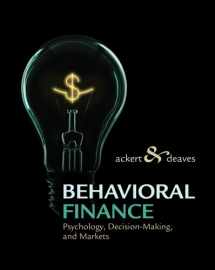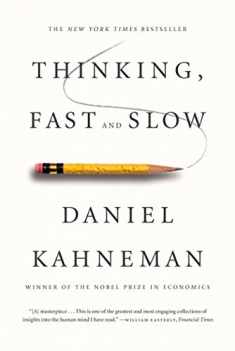
Behavioral Finance: Psychology, Decision-Making, and Markets
Book details
Summary
Description
Discover a structured, applied approach to behavioral finance with Ackert/Deaves' BEHAVIORAL FINANCE: PSYCHOLOGY, DECISION MAKING, AND MARKETS. This comprehensive text links finance theory and practice to human behavior with applications in every chapter. The book builds upon principles of finance, connecting content to psychological principles of behavioral finance, including heuristics and biases, overconfidence, emotion and social forces. Readers learn how human behavior influences the decisions of individual investors and professional finance practitioners, markets, and managers. The book clearly explains what behavioral finance indicates about observed market outcomes as well as how psychological biases potentially impact the behavior of managers. Readers see, first-hand, the implications of behavioral finance on retirement, pensions, education, debiasing, and client management. This book spends a significant amount of time examining how practitioners today can use behavioral finance to further their success.


We would LOVE it if you could help us and other readers by reviewing the book
Book review





